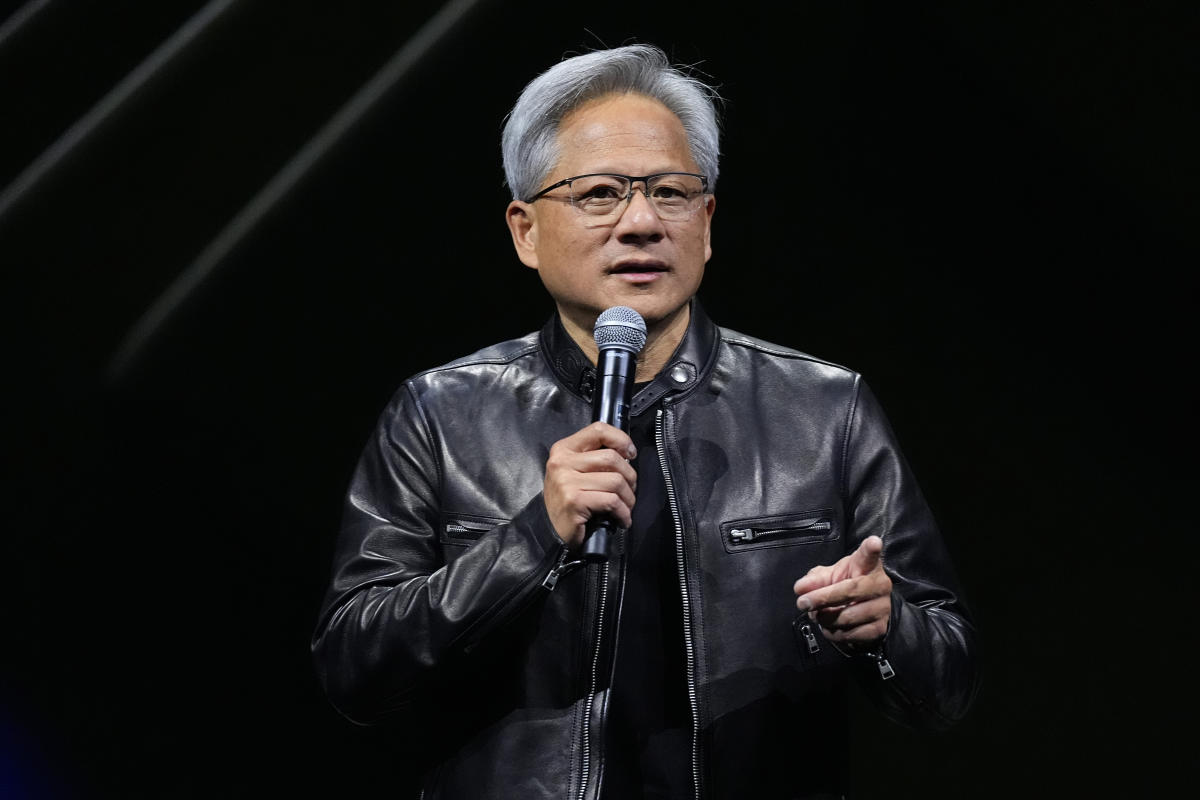Nvidia's Q2 Results: A Crucial Test for the AI Boom

Nvidia, the leading force in artificial intelligence (AI) technology, is set to release its second-quarter earnings after the close of trading on Wednesday. This announcement is highly anticipated, with investors eager to assess the health of the AI sector and gauge its potential for continued growth in the latter half of the year.
Nvidia's stock has surged by over 163% year-to-date and 60% in the past six months, reflecting the market's strong confidence in its AI dominance. In contrast, rival AMD has seen a more muted performance, with its share price up 9% year-to-date but down 14% in the last six months. Intel, meanwhile, has faced a significant downturn, with its stock price plummeting 57% since the start of the year and 53% over the past six months, as it navigates a challenging turnaround.
Analysts expect Nvidia to report adjusted earnings per share (EPS) of £0.51 on revenue of £22.5 billion for the quarter. This represents a substantial increase of 139% in EPS and 113% in revenue compared to the same period last year, when Nvidia reported EPS of £0.21 and revenue of £10.6 billion.
Nvidia holds a commanding position in the AI chip market, controlling between 80% and 95% of the market share according to Reuters. The company is poised to solidify its leadership further with the upcoming launch of its next-generation Blackwell line of chips.
While The Information has reported potential delays in Blackwell shipments, analysts remain optimistic about Nvidia's short-term prospects. Loop Capital managing director Ananda Baruah suggests the delay may be less impactful than initially anticipated, highlighting TSMC's continued improvement in Hopper chip yields and the expected increase in Hopper production to counterbalance the potential impact of Blackwell delays.
Nvidia's data centre business, a key revenue driver, is anticipated to generate £19 billion in revenue for the quarter, representing a 142% increase from the £8.1 billion recorded in the same period last year. Wall Street analysts expect Nvidia to not only exceed Q2 expectations but also raise guidance for the third quarter, a move supported by TSMC's recent strong earnings. TSMC, a key supplier of chips to Nvidia, has reported positive results.
Although impressive, data centre revenue growth is anticipated to moderate in the coming quarters. The current quarter's 142% growth rate is expected to decline to 426% last quarter and 408% in the fourth quarter of last year. This trend is expected to continue into the third quarter, with analysts projecting data centre revenue of £21.8 billion, a 91% year-over-year increase.
Despite the slowdown in growth, analysts remain confident in Nvidia's ability to maintain its strong performance. Stifel managing director Ruben Roy told Yahoo Finance that the company is on track to achieve data centre revenue of close to £23 billion in October, highlighting the continued strength of the market despite the "law of large numbers" effect. He also emphasized the potential for continued growth in profitability.
Nvidia's rivals are not standing still. Last week, AMD announced the acquisition of ZT Systems in a £3.8 billion deal, aiming to bolster its capabilities in building AI system servers, a key growth area for Nvidia. While this acquisition could boost AMD's sales, it is unlikely to pose a significant threat to Nvidia's dominance in the AI market anytime soon.
Beyond its AI revenue, Nvidia is also expected to report gaming revenue of £2.1 billion. While gaming has taken a backseat to AI in terms of revenue contribution, it remains a significant segment for Nvidia, significantly exceeding the revenue generated by other businesses like professional visualization and automotive.
Nvidia's earnings report is a crucial event for the tech sector, providing insights into the continued growth trajectory of the AI market and highlighting the ongoing competition between industry giants. Investors will be closely watching Nvidia's performance as it continues to navigate the exciting and rapidly evolving world of artificial intelligence.





